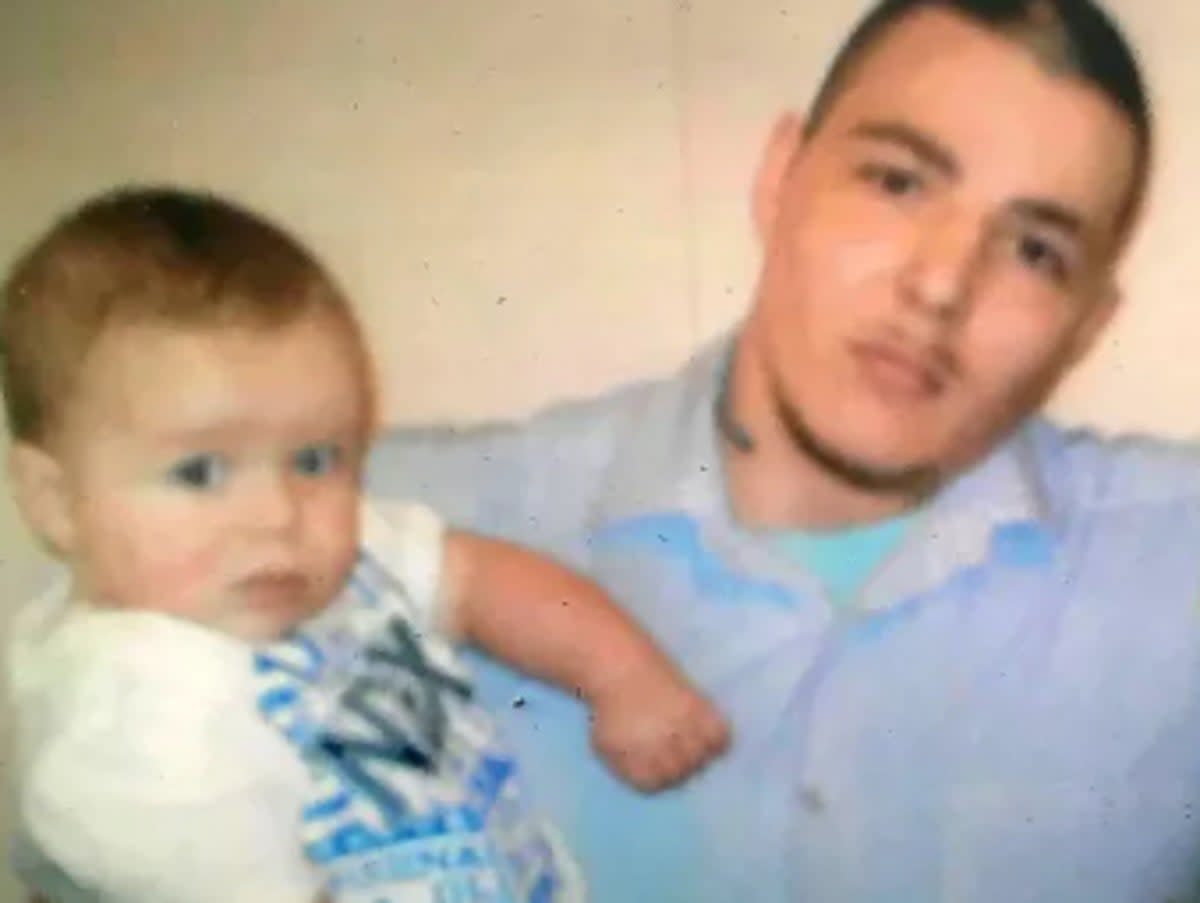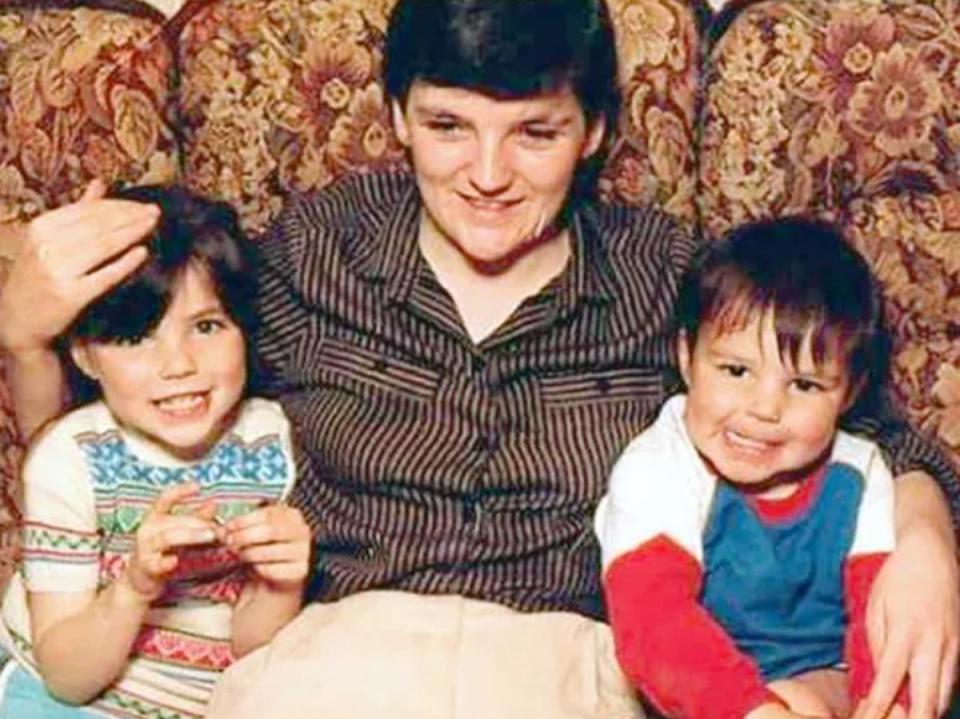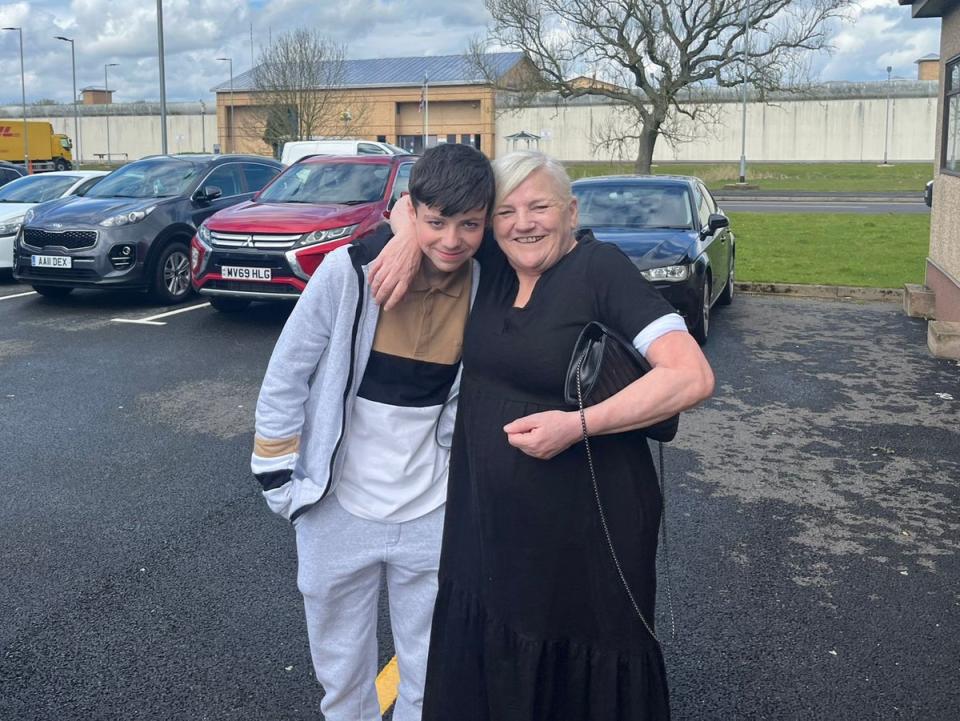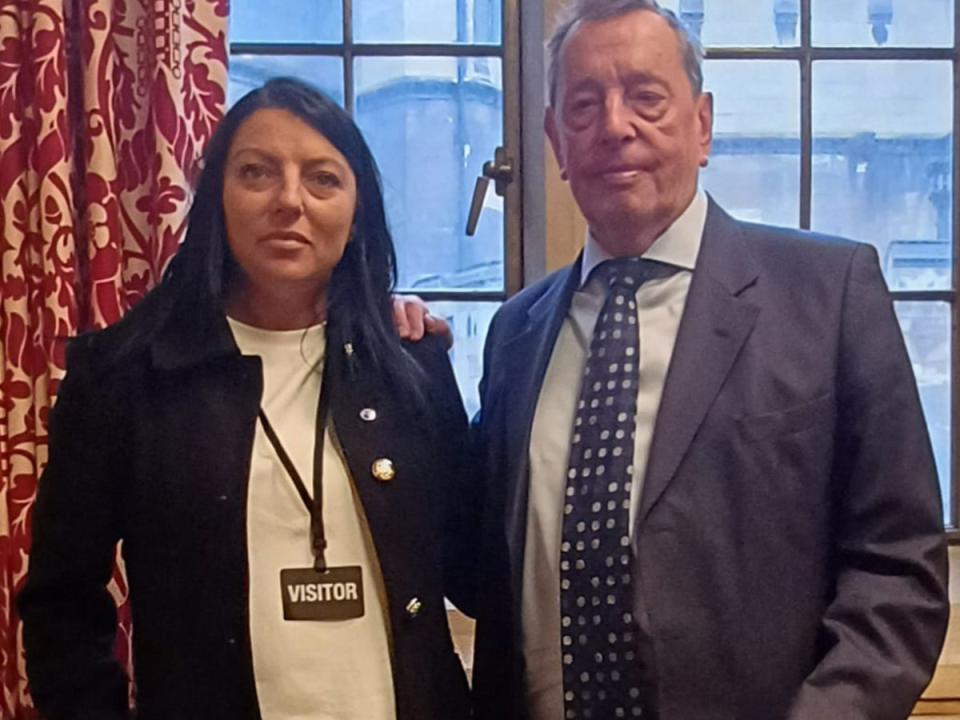Dad trapped under indefinite jail term ‘failed and forgotten’ as he’s transferred 12 times in 12 years

A dad who has served 12 years for stealing a mobile phone under an “inhumane” indefinite jail term has been forced to move prison for the twelfth time as he struggles with an endless “prison merry-go-round”.
Thomas White, 40, was this week returned to the prison where he was first incarcerated under an Imprisonment for Public Protection (IPP) sentence at HMP Manchester.
In total he has now been held at 12 prisons in as many years - and is no closer to being freed.
His family believe he is now “back at square one”, trapped in a prison with no courses to help him progress towards release as he struggles with severe mental health problems he developed inside.
Meanwhile, campaigners say reforms this week granted Royal Assent as part of the Victims and Prisoners Bill to help IPP prisoners on licence will do nothing for those who have never been freed.
Thomas’ sister Clara White told The Independent: “It’s shocking - 12 prisons in 12 years, all around Britain, and we are back at square one at the prison where we started. So he’s gone full circle.
“My brother has been treated like a Royal Mail parcel. This is a man with paranoid schizophrenia.”
She accused the government of being “all talk” when they promised to help IPP prisoners with mental health problems, adding: “They just care about the short-term numbers. This system is a shambles and my brother and many others like him are the victims.
“This prison merry-go-round isn’t what justice is about – they’ve failed and forgotten us.”

Although Thomas and his family have never been told the reason for his repeated transfers, Clara suspects prisons move him on because he can’t progress. “It’s because they can’t progress him in that prison so they think we are going to have to move him on,” she told The Independent.
IPP sentences – under which offenders were given a minimum jail term but no maximum – were scrapped in 2012 amid human rights concerns, but the abolition of the policy did not affect those already sentenced, leaving thousands trapped in jail for years beyond their original prison term.
Thomas, who had previous convictions for theft, was handed an IPP sentence with a two-year term for robbery just four months before the sentences were outlawed. Then aged 27, he had been binge drinking when he took the phone from two Christian missionaries in Manchester.
But thanks to the indefinite jail term, he is still in prison more than 12 years later with little hope of release as his family calls for him to be moved to a psychiatric care facility.
He has been diagnosed with paranoid schizophrenia, which an independent psychiatric report linked to the hopelessness of his IPP sentence.
Over the years he has been held at prisons across the country, including HMP Chelmsford, in Essex and HMP Swaleside on the Isle of Sheppey in Kent – nearly 300 miles from his family.
Now back at HMP Manchester, Thomas is locked up for 23 hours a day despite his mental health issues and has no access to required courses to help IPP prisoners progress to release.
The Independent has called for an immediate review for almost 3,000 IPP prisoners like Thomas who are still languishing in prison - 708 of which have served more than ten years longer than their original sentence.

Last month we revealed details of Thomas’ heartfelt reunion at HMP Garth with his son Kayden, 14, who had been banned from visiting his father in prison for more than a decade.
The reunion was arranged after an intervention by Lord David Blunkett, the architect of the IPP sentence who admits he regrets introducing them under New Labour in 2005.
Following the reunion, his sister Clara told The Independent: “They tortured my brother. They psychologically tortured him, and they abused his right to family life, and they got away with it for more than a decade.”
The latest prison move comes as this week major reforms for released IPP prisoners became law, reducing the licence period from ten to three years as well as a discretionary power of executive release for those recalled to prison – often for minor breaches of strict licence conditions.
However other crucial reforms tabled in the House of Lords to help those who have never been freed were unsuccessful after Labour refused to back changes to the parole process.
Campaigners are continuing to call for the incoming government to carry out a resentencing exercise for all IPP sentences, a move which was recommended by the cross-party justice committee in 2022.
After almost 90 suicides by IPP prisoners, campaigners say resentencing would be a “life-saving policy” for those trapped under a sentence which has been condemned as “psychological torture” by UN special rapporteur Dr Alice Edwards.
This includes the tragic case – highlighted by The Independent – of Scott Rider, who was given a 23-month jail term and took his own life in despair after serving 17 years in prison.

A spokesman for campaign group UNGRIPP said they were “extremely grateful” for the recent reforms but insisted they will not help those who have never been released.
“We have always pushed for resentencing as the only way to truly fix IPP, and we will continue to do this with the new government,” a spokesman said.
Mark Day, deputy director of the Prison Reform Trust, agreed the licence period reforms were “important and welcome steps in the right direction”.
“But IPP prisoners and their families will rightly feel aggrieved that the 1,200 IPPs in prison who have never been released have been largely left out of the government’s proposals,” he added.
“Bolder reforms will be needed for the stain of the IPP sentence finally to be eradicated.”
The Ministry of Justice declined to comment due to the pre-election campaigning period.

